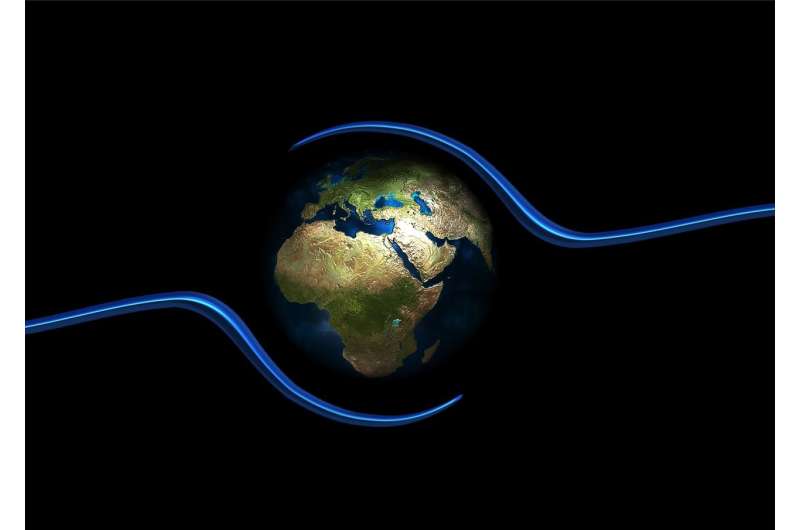This article has been reviewed according to Science X's editorial process and policies. Editors have highlighted the following attributes while ensuring the content's credibility:
fact-checked
peer-reviewed publication
trusted source
proofread
Psychology study offers messaging roadmap for changing attitudes on environmental issues and policies

Conservatives and liberals may be at odds in their views on environmental issues, but a new psychology study shows that framing the need to address climate change as patriotic and as necessary to preserve the American "way of life" can increase belief in climate change and support for pro-environmental policies among both groups.
"Framing climate change action as a way to protect and preserve patriotic values and familiar ways of life can improve climate awareness and motivate action across the American political spectrum," says Katherine Mason, a New York University doctoral student and the lead author of the study, which appears in the Proceedings of the National Academy of Sciences (PNAS).
"This approach encourages people to see climate action as a way to celebrate and sustain cherished cultural traditions, rather than having to relinquish or replace them."
The findings, which stem from an experiment involving 50,000 participants across 60 countries, showed such messaging had similar, though smaller, effects among liberals in some nations, including France and Chile, and among conservatives in Israel and Chile. However, it backfired among conservatives in other nations—notably, Belgium, Germany, and Russia.
Overall, the results are at odds with much of today's pro-environment messaging, which often centers on doomsday scenarios, overhauling our socioeconomic system, or radically altering our consumption habits.
"It is crucial to avoid triggering…existential threats, insofar as these can motivate system defensiveness and backlash against pro-environmental initiatives," write the authors, who also included John Jost, a professor in NYU's Department of Psychology, and Madalina Vlasceanu, an NYU assistant professor at the time of the study and now at Stanford University.
In the PNAS study, participants were informed they would be asked to read some information, report on their beliefs and behaviors, and write a small paragraph.
To ensure a common understanding of climate change, they were given the following definition: "Climate change is the phenomenon describing the fact that the world's average temperature has been increasing over the past 150 years and will likely be increasing more in the future."
Participants assigned to the control condition then read a literary passage from Charles Dickens' 1861 novel "Great Expectations," which made no references to the climate.
In the "framing" condition, participants read a message aimed at increasing feelings of connection to the existing social system, linking the nation's "way of life" to natural and cultural traditions and communicating that climate change poses a threat that requires patriotic, pro-environmental action to "protect and preserve" the national heritage "as it should be." The message, which was accompanied by photographs of cities, natural resources, people, and flags, was tailored to include country-specific terms.
Participants in the control and framing conditions were then asked to answer questions pertaining to belief in climate change, support for pro-environmental policies, and willingness to share climate information on social media.
Among US participants, those who read the patriotic/status quo message showed increased belief in climate change, more support for pro-environmental policies, and a greater willingness to share climate information on social media relative to the control group. Moreover, this message was similarly effective for conservatives and liberals.
"Climate change is a challenge that must urgently be tackled," says Mason.
"Our approach tested the ways to communicate information about climate change that resonates with people's pre-existing values and beliefs. Crucially, these results suggest that messages aligning with preferences maintaining the status quo may improve climate awareness and action among not only conservatives—whose attitudes are most in sync with such messages—but also among liberals."
In the paper, the researchers offer a detailed analysis of findings from other nations, outlining similarities and differences from the US sample and possible reasons for them.
More information: Mason, Katherine A., Effects of system-sanctioned framing on climate awareness and environmental action in the United States and beyond, Proceedings of the National Academy of Sciences (2024). DOI: 10.1073/pnas.2405973121. doi.org/10.1073/pnas.2405973121
Journal information: Proceedings of the National Academy of Sciences
Provided by New York University





















